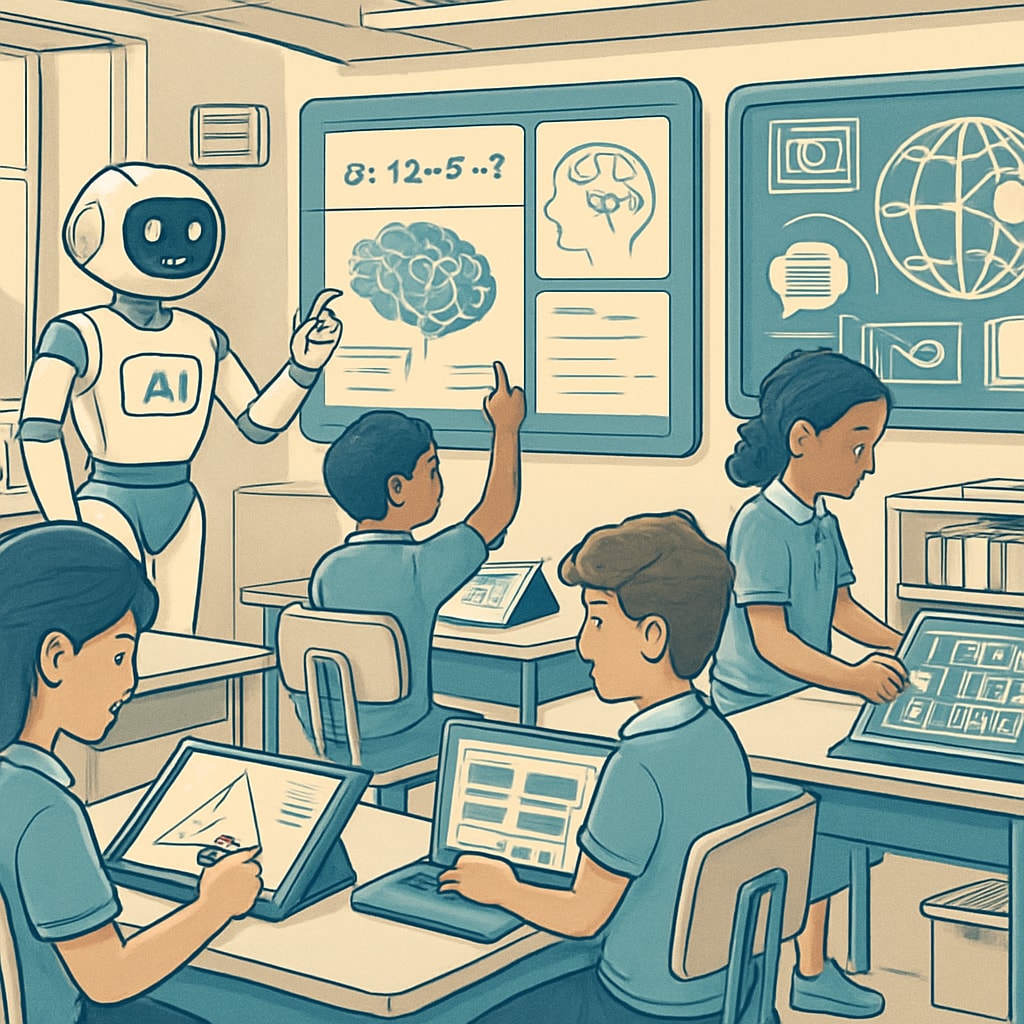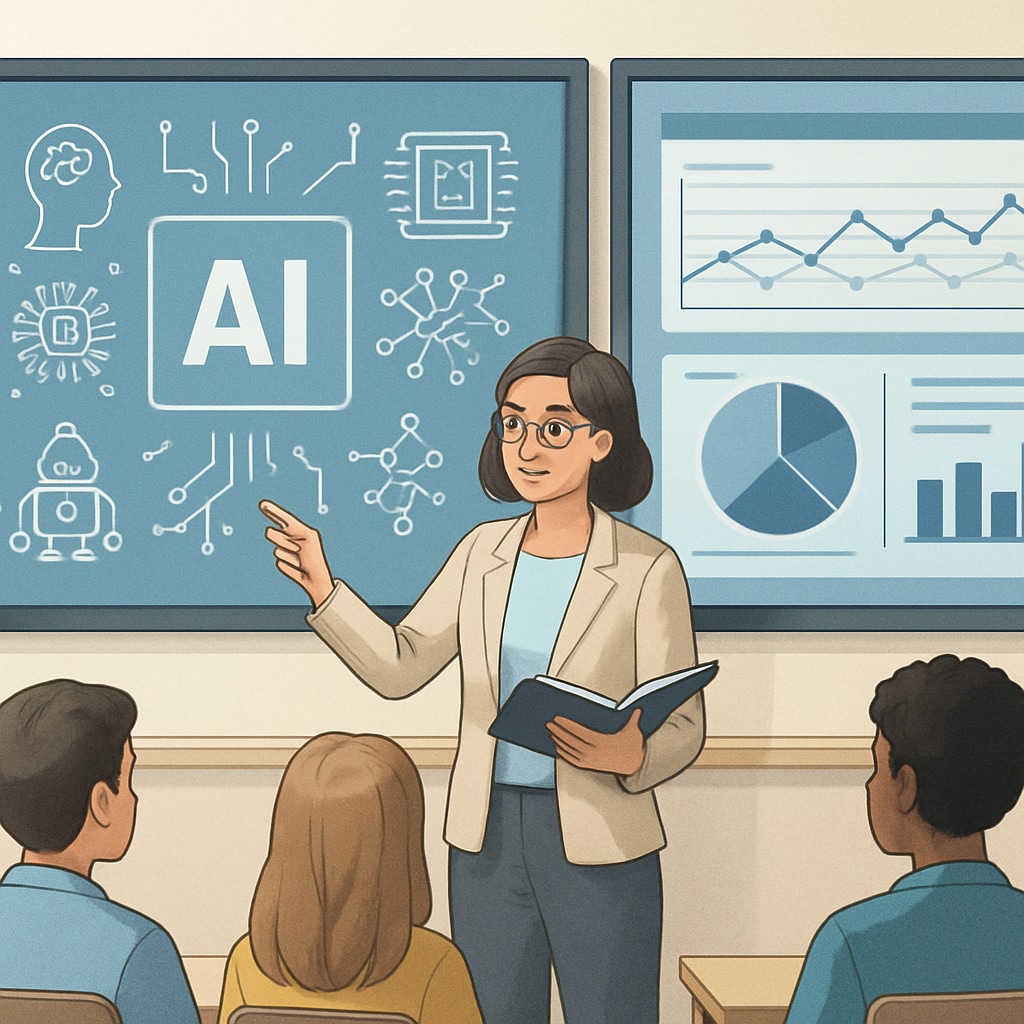Artificial intelligence (AI) is transforming school education with profound future implications. Over the next 5-10 years, AI is expected to redefine traditional learning practices, reshape teacher roles, and revolutionize assessment methods. As schools adopt AI-driven tools, the education ecosystem is entering a new era of innovation. This article explores the potential of AI in education along with the challenges it poses for educators, policymakers, and parents.
Personalized Learning: A Tailored Approach
One of the most promising impacts of AI on education is the ability to deliver personalized learning experiences. AI-powered platforms can analyze student performance, identify gaps, and provide tailored recommendations. For example, adaptive learning systems like Khan Academy use machine learning algorithms to customize content based on individual needs.
- AI enables students to learn at their own pace, addressing their specific strengths and weaknesses.
- It provides real-time feedback to help students improve continuously.
- AI tools like intelligent tutors simulate one-on-one instruction, making high-quality education accessible to all.

The Evolving Role of Teachers
AI is not replacing teachers but augmenting their roles. Educators can utilize AI to automate administrative tasks, freeing up time for more meaningful interactions with students. Tools like automated grading systems and AI-driven scheduling software are reducing the workload for teachers.
Moreover, AI supports teachers by providing valuable insights into student progress and behavior. This allows educators to focus on mentorship, creativity, and problem-solving skills rather than repetitive tasks. However, teachers must adapt to new technologies and acquire digital literacy to maximize the benefits of AI.

Redefining Assessment and Evaluation
Traditional assessment methods often fall short in capturing a student’s true potential. AI-driven systems are changing this by introducing dynamic and continuous evaluation processes. For example, AI tools can assess soft skills like creativity, collaboration, and critical thinking, which are crucial for success in the 21st century.
- AI can conduct formative assessments to provide instant feedback, helping students refine their understanding.
- It enables complex analysis of academic and behavioral data to evaluate holistic development.
- AI-based assessment systems are more objective and reduce human biases in grading.
Despite these advancements, ethical concerns around data privacy and algorithmic transparency must be addressed to ensure fair and equitable assessment practices.
Challenges and Ethical Considerations
While the integration of AI into school education offers immense benefits, it also poses challenges. Data privacy is a major concern, as AI systems require access to sensitive student information. Additionally, there is a risk of over-reliance on technology, potentially reducing human interaction and emotional intelligence in education.
Policymakers and educators must prioritize ethical AI use by establishing strict regulations and promoting transparency. Collaboration between stakeholders is essential to ensure that AI enhances education without compromising its core values.
Readability guidance: Short paragraphs, clear lists, and active voice are used to ensure reader engagement and comprehension. Overcoming challenges and leveraging AI responsibly will require a balanced approach and ongoing dialogue among all parties involved.


